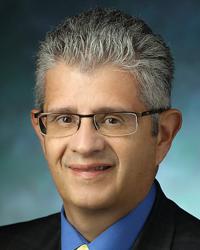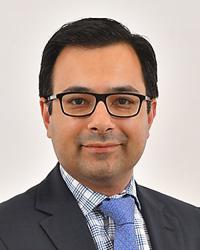Research Lab Results
-
Ivor Berkowitz Lab
Research in the Ivor Berkowitz Lab targets pediatric critical care medicine. We are particularly interested in the pathophysiology behind the cerebrovascular dysfunction that occurs in bacterial meningitis as well as the anesthetic and perioperative complications of patients with dwarfing syndromes.
Principal Investigator
Department
-
Donald Shaffner Lab
Work in the Donald Shaffner Lab investigates several topics within critical care medicine. Our team conducts research on the mechanisms involved in neurologic injury from global ischemia as a result of cardiac arrest and resuscitation. We also study neurologic outcomes of pediatric patients who experience cardiac arrest.
-
David Hager Lab
Research in the David Hager Lab focuses on critical care medicine. Recent studies includes an analysis of advances in the management of the acute respiratory distress syndrome (ARDS) and the development of a targeted real-time early warning score predicting septic shock. Other interests include ventilator-induced lung injury and high-frequency ventilation.
-
Pedro Alejandro Mendez-Tellez Lab
Work in the Pedro Alejandro Mendez-Tellez Lab focuses on critical care medicine and acute lung injury. Recent studies include evaluating demographic and clinical factors associated with self-reported dysphagia after oral endotracheal intubation and mechanical ventilation in patients with acute lung injury. We've also analyzed orticosteroids and their relationship with delirium in critically ill patients.
-
Mary Beth Brady Lab
Research in the Mary Beth Brady Lab focuses primarily on topics within the fields of anesthesiology, imaging and cardiology. Our work has explored transesophageal echocardiography simulation, echocardiography, cardiac and vascular-thoracic anesthesiology, and other areas within critical care medicine. A recent study involved obtaining 3-D images of the heart, which were then used to build computer programs to help cardiac surgeons improve their treatment of heart defects. -
Enid Neptune Lab
Work in the Enid Neptune Lab focuses on topics within the fields of pulmonary and critical care medicine. Our research centers primarily on therapeutic strategies for Marfan syndrome and hepatocyte growth factor signaling in airspace homeostasis. We also conduct research on chronic obstructive pulmonary disease (COPD), with a focus on its mechanisms and potential methods for preventing its progression. Our research within critical care has most recently involved investigating superoxide dismutase 3 dysregulation in neonatal lung injuries.
-
Larissa Shimoda Lab
Research in the Larissa Shimoda Lab focuses on several important topics within pulmonary and critical care medicine. We primarily study pulmonary arterial responses to chronic hypoxia as well as hypoxic pulmonary vasoconstriction and oxidant-mediated lung injury. Our recent research has included investigating the effects of chronic hypoxia on pulmonary circulation and the ways in which hypoxia-inducible factors impact pulmonary vascular responses to hypoxia. We have also studied vascular remodeling in patients with pulmonary hypertension.
-
Asad Latif Lab
Research in the Asad Latif Lab focuses on patient safety and quality improvement. Our key interests include preventing hospital-acquired infections and improving health systems, the evaluation and prevention of healthcare errors and the utility of telemedicine in intensive care units. One recent study focused on reducing medication errors (the single most common type of error in healthcare) related to drug formulation in the intensive care unit. -
Jonathan Jun Lab
The Jonathan Jun Lab studies the function of lipolysis in intermittent hypoxia-induced insulin resistance.
-
Charles Hugh Brown Lab
The Charles Hugh Brown Lab researches cognitive dysfunction, with a focus on quality of care and outcomes regarding perioperative management of older patients. Our studies explore post-operative delirium, cognitive changes and transfusion practices. We also have a longstanding interest in cerebral autoregulation and its role in post-surgical outcomes.


